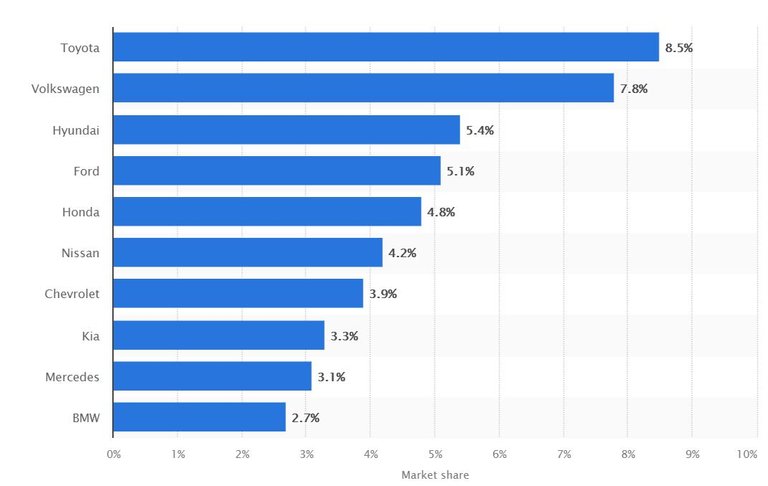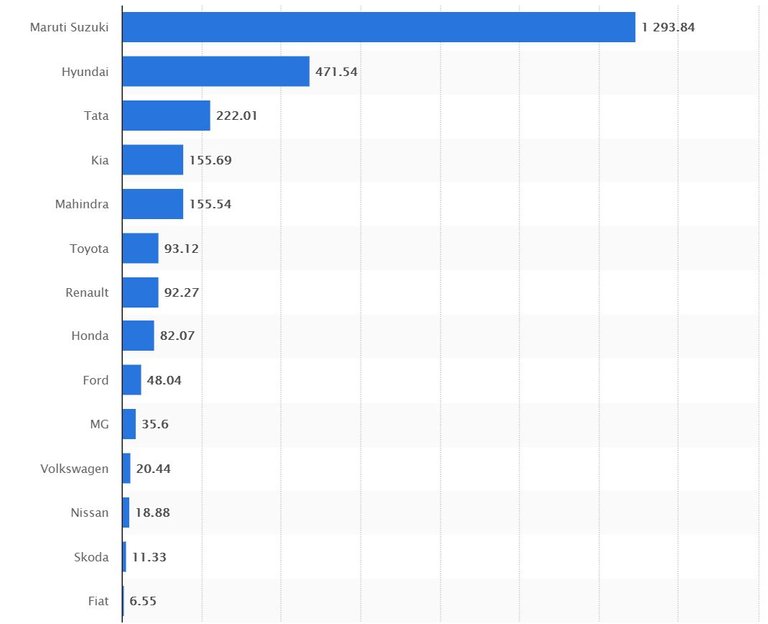The day before yesterday, Ford announced that it had decided to shut operations in India. This news did not shock many since Ford had been trying to find a partner for a long time to make its two factories operate at a higher capacity but was unable to do anything.
A lot of news is already out in terms of why Ford had to take this decision. Ford's manufacturing units were set up to produce 400,000 units annually at 100% capacity but were only able to operate at 20% capacity. Ford had incurred about $2 billion in operating losses in the last 10 years. Ford has had a long history in India. It had been around for almost 20 years and the cars were known for engine performance and good build quality. However, there were still no takers.
The economic loss is not huge but still significant. About 40 thousand workers will be directly and indirectly impacted by Ford's decision. This includes staff employed by dealerships. This is not good news when India is dealing with large unemployment and the auto sector is not doing well. Cars have become expensive thanks to rising input costs. Government taxes are also high and customers pay up to 50% in taxes and overhead costs. Fuel prices are also on the rise and that makes ownership costs high.
My post is more about the Indian consumer and how the market is too small for large global players to make decent money in the Indian markets.
Let's first take a look at the market share of global car companies -
Toyota is the world's biggest auto major in terms of sales and Ford is not far behind. Toyota cars are known for their reliability the world over and Ford sells more cars than Nissan and Honda. The market is ruled by the Germans and the Japanese.
Let's look at the same figure for India -
Two of the world's biggest car markets are the US and China. about 17 million cars are sold in the US and 24 million in China. Eurozone as a whole is the third biggest market. India is a small market compared to that with 3.0 million cars sold in 2018. Since the pandemic, the number has come down to less than 2 million in annual sales. Of that nearly 50% market share is that on 1 company - Maruti Suzuki. So the other 13 players have to fight for half the market. Toyota, the world leader in auto sales, is able to sell only 100,000 vehicles in India. VW sells 20,000!
The Indian consumer is very specific. It wants cheap ownership costs over anything else - more like low running cost i.e. solid mileage at the expense of safety, build quality, engine performance, etc. So much so that the player with the highest market share sells cars that are rated 0 by Global NCAP in terms of safety quite successfully.
Besides this consumer that wants mileage, there is a large chunk of consumers that was fancy looking cars with loads of tech features - a place dominated by Hyundai and Kia. Hyundai is a company that has understood the Indian market well. The top 4 manufacturers in India take up 85% market share. Why would anyone else want to enter this space to fight for a 15% market share - about 350,000 cars? Even if that market grows at 10%, it's still a $3.5 billion market. Assuming one can get a 10% market share that's $350 million in revenue. Ford's annual turnover is $120 billion, Toyota's is $240 billion. Hope one gets the context.
Even with such low sales numbers, most Indian cities are unable to cope with city traffic. Government should be more focused on decongesting cities and the traffic also acts as a deterrent to car ownership.
I do not think India is a great market for auto companies to invest in. India's growth potential has long been sold as an incentive for companies to invest but it has been an unsuccessful venture for more companies. I think more car companies will pull the plug on their India operations in the coming years. I believe VW group, Fiat, and Nissan are next in line. Most car companies globally tend to stick to a product line if it works. In India, few companies are able to do so. Cars are considered a status symbol in India, an asset, whereas they are just the opposite - a permanent liability and just a utility. Here products need to be updated frequently and having a meaningful market share requires a 10 year to a 15 year investment horizon, as dealerships and service centers are made available. If after that, a company does not see success, it will lose interest in the market.
Posted Using LeoFinance Beta



Maybe they are paying more tax in the country that's while they are pulling out.the government need to do something about it
Posted Using LeoFinance Beta
They are not able to sell cars. Haven't kept up with the market.
Posted Using LeoFinance Beta
Okay maybe the country are facing hardship now
Posted Using LeoFinance Beta
Country isn't but those who were employed and are about to lose jobs will for sometime
Okay
Posted Using LeoFinance Beta
The rewards earned on this comment will go directly to the person sharing the post on Twitter as long as they are registered with @poshtoken. Sign up at https://hiveposh.com.